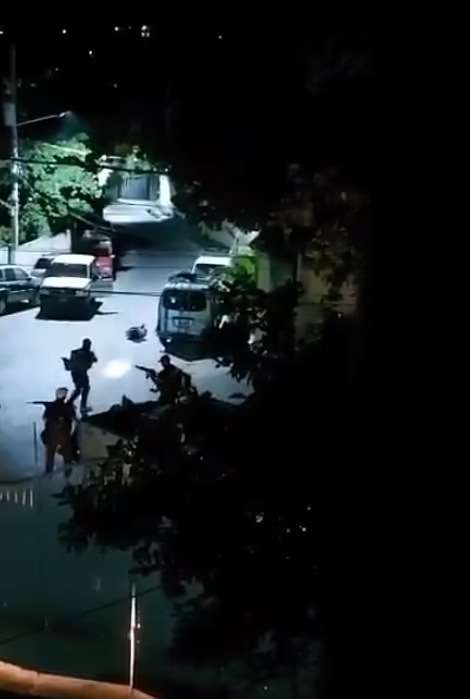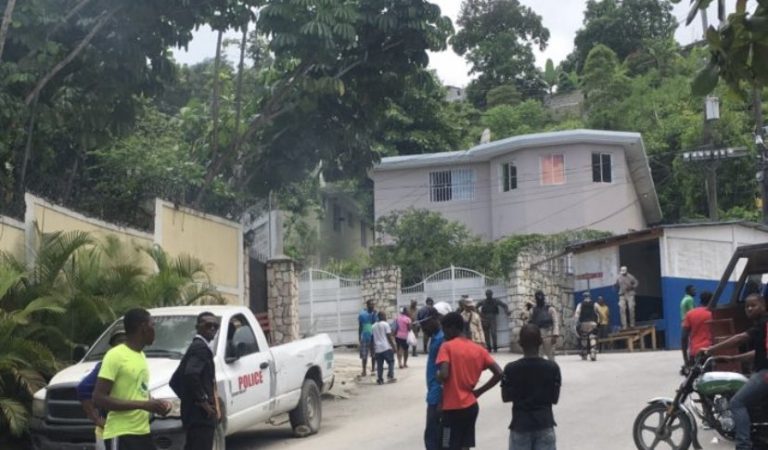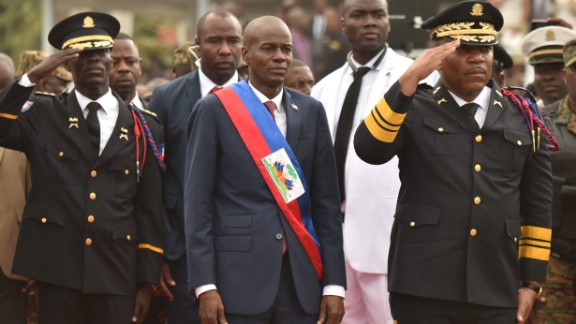Haitian president assassination was orchestrated by drug gangs, backed by some Haiti’s power brokers, as the attackers tried to indict the U.S. government of murder. Colombian and Venezuelan citizens, with drug gangs, are not excluded to have been among the attackers.
The president of Haiti, Jovenel Moïse, 53, has been assassinated in his home by a group of armed men who also seriously injured his wife, according to a statement and comments made by the country’s interim prime minister Claude Joseph.
According to the Haitian ambassador to Washington, Bocchit Edmond, Moïse’s killers claimed to be members of the US Drug Enforcement Administration (DEA) as they entered his guarded residence. They presented themselves as DEA agents, telling people they had come as part of a DEA operation (probably Haitian-American James Solages made this). The attackers might have been resorting to a ruse to get officers guarding the president to step aside. The fact the DEA was chosen to cover up the attack might indicate the masterminds behind the killing were tied to drug trafficking.

The illegal drug trade in Haiti involves trans-shipment of cocaine and marijuana to the United States. It is a major shipment route. The island of Hispaniola, which Haiti shares with the Dominican Republic places Haiti in an ideal location for drug smuggling between Colombia and Puerto Rico. Because Puerto Rico is a Commonwealth of the United States, shipments are generally not subject to further U.S. Customs inspection after reaching the territory. Cocaine is also often smuggled directly to Miami in freighters. Throughout the late 1980s and into the 1990s, leading members of the Haitian military, intelligence and police were involved in the illegal drug trade in Haiti, assisting Colombian drug traffickers smuggling drugs into the United States.
According to a 2019 “International Narcotics Control Strategy Report” by the United States Department of State Bureau for International Narcotics and Law Enforcement Affairs, “Haiti remains a transit point for cocaine originating in South America and marijuana originating in Jamaica, traversing the country’s porous borders en route to the United States and other markets”. Haiti is not a significant producer of illicit drugs for export.
The attack took place at Moïse’s house in the Pelerin 5 district of Pétionville, a wealthy area with sometimes substantial and leafy villas in the hills above the capital, Port-au-Prince, with a reputation for being safe.
The attack happened barely 24 hours after Moïse had named a new prime minister, Ariel Henry, to take charge as head of the government and prepare the country for presidential elections in the next two months.
Interim prime minister Claude Joseph was supposed to step down on July 5, with Ariel Henry to be appointed as the new prime minister. It cannot be ruled out, therefore, that change of Haitian prime ministers is linked to the assassination of president Moïse. If so, the outside forces behind the killing were assisted by the internal forces in Haiti, as some local power brokers are tied to drug trafficking.
Joseph Lambert, e.g., the president of the Haiti Senate and president of the Haiti National Assembly is also the incriminated President Jovenel Moise’s close ally and one of former president Michel Martelly’s advisers. He has similarly been accused of having high-level connections with drug dealers and has been involved in other criminal activities;
- Senator Willot Joseph has been also implicated in drug trafficking.
- President Moïse himself had run a 2-year campaign that cost millions of dollars. Many suspected that drug money was involved in the process but without strong evidences.
The assassination can plunge the impoverished Caribbean nation into further turmoil. With Haiti politically divided, and facing a growing humanitarian crisis and shortages of food, there are fears of widespread disorder. That scenario is probable if the prime minister fails to quickly get things under control and reach a deal with political actors in the country. The attack against the president most likely was intended to put Moïse out of the way, as he did not want to quit as president, to boost a certain political player to power.
Moïse had been ruling by decree for more than a year after the country failed to hold legislative elections and he wanted to push through controversial constitutional changes. It is likely that president’s close associates were involved in the killing, as they realized they had bare chance to win the presidency, even if the presidential vote is held in Haiti.
Jovenel Moïse had been struggling to quell growing public anger over his attempt to hold onto power despite the opposition’s insistence that his term had expired.
Moïse enjoyed a good relationship with former US President Donald Trump, owing to the Haitian leader’s repeated denouncement of Venezuelan President Nicolás Maduro. Venezuela responded by accusing Moïse’s administration of corrupt handling of money from PetroCaribe, a loan programme designed to help Caribbean countries create their own development funds. So, instability in Haiti has been exacerbated by this Petrocaribe scandal, a controversy that arose from a scheme to buy discounted oil from Venezuela on cheap credit. The idea was to free up funds for social schemes, but the money was pocketed by politicians. That fact indicates Venezuela might be involved in the assassination.
What is more, in 2015, two nephews of the first lady of Venezuela, who were arrested in Haiti and flown to New York, have been indicted in New York on federal drug smuggling charges. Efraín Antonio Campo Flores, 29, and Francisco Flores de Freitas, 30, are accused of conspiring to smuggle cocaine into the United States, according to the four-page indictment.
The alleged conspiracy involved 800 kilograms of the illegal drug, according to The Wall Street Journal. The charges brings a maximum of life in prison.
The pair were picked up in Port-au-Prince, Haiti, after arriving from Venezuela aboard a private plane, and turned over to U.S. Drug Enforcement Administration agents.





